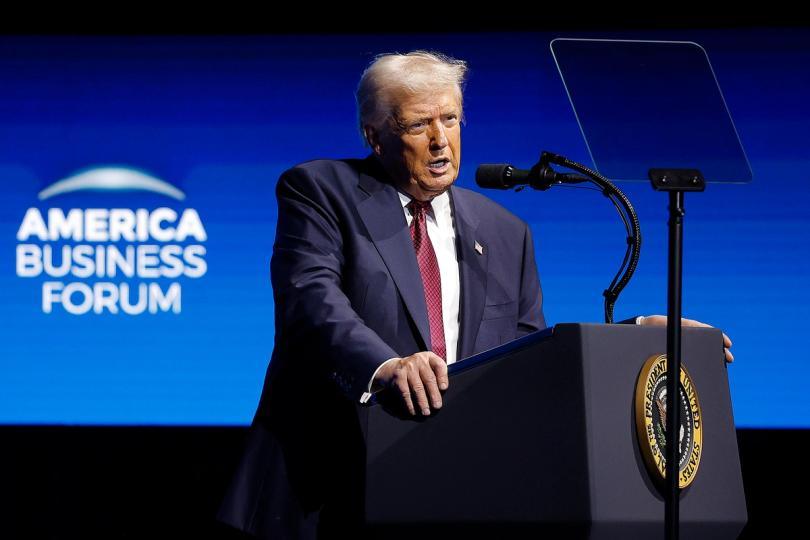Speaking at 1 p.m. ET on Wednesday, the first day of the two-day America Business Forum in Miami, Florida, President Donald J. Trump urged the United States to embrace crypto and outlined an ambition for American leadership. “We are here…to embrace a vital industry here in Miami,” he said.
Trump presented his administration as a reversal of hostility in Washington: “I also signed historic executive orders to end the federal government’s war on crypto. Crypto was under siege. It is no longer.”
He argued that the sector is important and supported by business leaders: “Because it’s a big industry. It’s a big industry, and I have a lot of people who are great people, great business people. They’re in other businesses, but they’re also in crypto.”
He linked digital assets to the U.S. currency: “And that takes a lot of pressure off the dollar. It does a lot of good things, but here we are.” He contrasted his stance with that of the previous administration: “Biden was vicious on crypto. They were going after these crypto guys. It was terrible. They were indicted.” (Trump then moved on to his own legal battles, which did not involve crypto.)
Trump framed the goal as national leadership: “We are making the United States the Bitcoin superpower, the crypto capital of the world” and linked his technology message to AI by calling the United States “the undisputed leader in artificial intelligence.”
Looking abroad, he warned of competitive pressure: “And remember, if we don’t do crypto right, China…China wants to do it. They’re starting, but they want to do it. Other countries want to do it. If we don’t do it right, it’s a big industry.”
His remarks in Miami emphasized positioning rather than new details; he did not announce new deadlines or new agency guidelines.
This year, the White House has taken steps consistent with this posture, including the creation of a strategic Bitcoin reserve and digital asset stockpile in the United States using coins obtained through federal seizures and forfeitures; however, no government purchases of Bitcoin have been made.
A stable framework for coins was advanced via the GENIUS Act, signed into law on July 18, while broader market structure legislation continues to advance. Trump’s team also rejected a US central bank digital currency, presenting crypto policy as compatible with dollar primacy.




